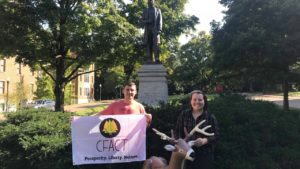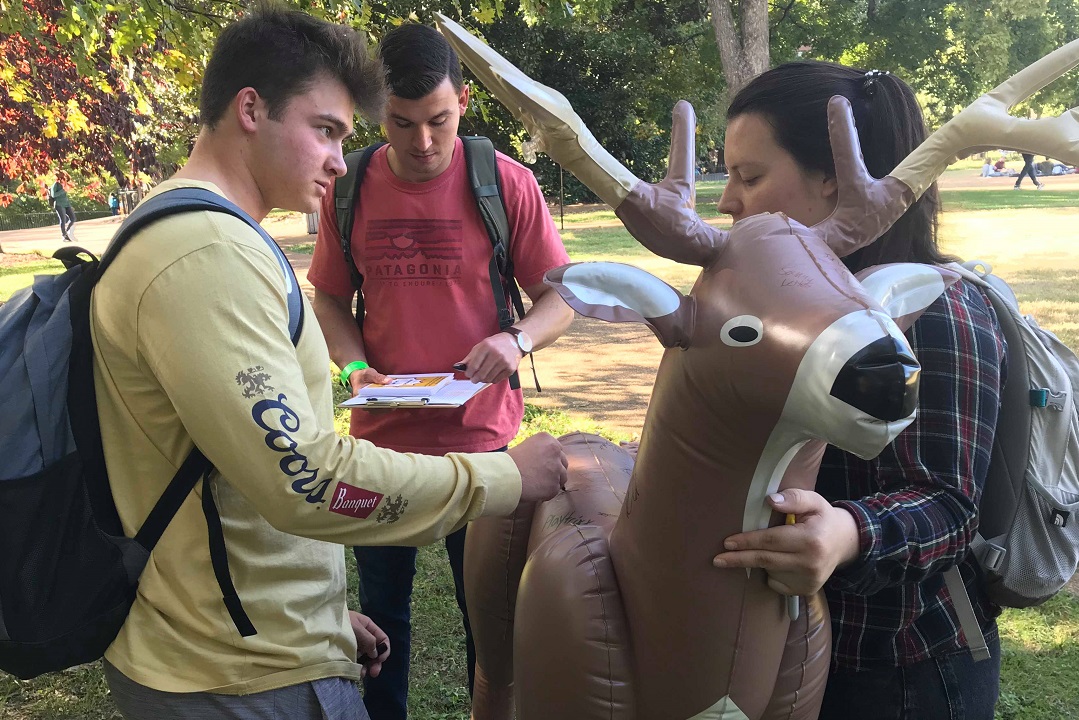
CFACT activists pose with the inflatable deer prior to asking students to sign it in support of hunting!


CFACT activists pose with the inflatable deer prior to asking students to sign it in support of hunting!
Across three campuses this semester, CFACT Collegians brought a healthy dose of reality to the...
In a cozy corner of Washburn University’s student union this spring, McKrae Masters staged a...
Florida has always been home to a remarkably diverse biome. However, in recent decades, the...